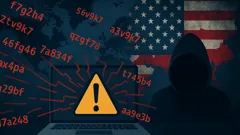569
7
4 minutes
Suggested Articles

First-generation Ivy Leaguers triumph over unique college challenges
Discover key insights, life hacks, and data-driven tips for first-generation college students thriving in prestigious U.S. universities. Find practical strategies, unique challenges, and fresh perspectives essential for student success.

16 Billion Passwords Exposed: How to Stay Safe After the Biggest Data Leak
News & Updates

Saying No to Your Boss: The Empowering Skill Every Young Woman Needs
News & Updates

Master tough job hunts by spotting entitled employers early
Hiring

Engineers thrive when workplace rivals scheme but integrity prevails
Hiring

Unlock peace of mind by choosing the perfect financial adviser
News & Updates

Navigating salary questions with confidence protects your paycheck and reputation
Hiring

When workplace fairness fails you by email, here’s your next move
News & Updates

Travelers overcome lost ID stress as TSA guides you safely to your flight
Civic Education

Frustrated professionals reclaim respect after denied raises and toxic jobs
Hiring

A holiday mishap unexpectedly boosts career and office trust
Hiring

First-generation Ivy Leaguers triumph over unique college challenges
Hiring

Americans brace for possible Social Security cuts that reshape retirement
News & Updates

Why this Florida data leak changes how we think about privacy
News & Updates

Build your own AI chatbot and unlock hands-on tech superpowers
Resources & Tools

How to outsmart hidden medical expenses in your golden years
Civic Education

California workers secure jobs this summer with new 2025 laws
Hiring
 Love Women Vibes
Love Women Vibes

Comments